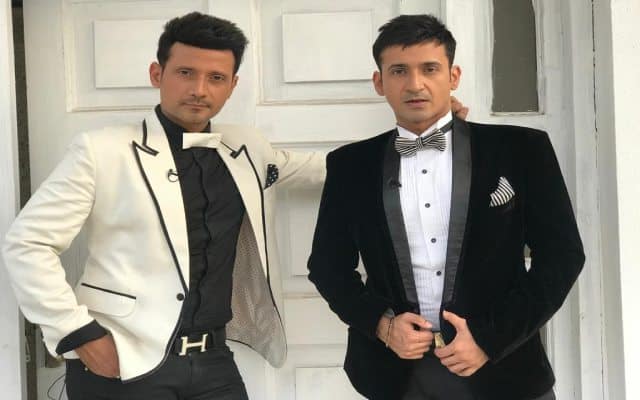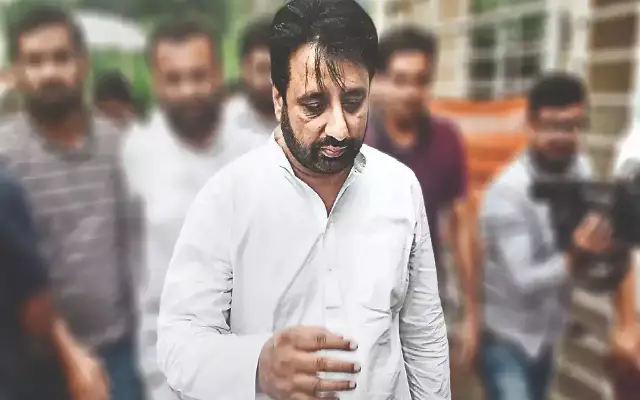It is no surprise that Manmeet Singh and Harmeet Singh aka Meet Bros have garnered a loyal following for their upbeat, vivacious, and danceable music. They are renowned for their musical diversity on a 360-degree spectrum, which includes a range of genres such as hip-hop, rap, and independent music alongside ghazals and spiritual songs are included in their repertoire.
They achieved the highest success with their songs like Baby Doll (Ragini MMS 2), Chittiyaan Kalaiyaan (Roy), and Dil Galti Kar Baitha Hai with Jubin Nautiyal. Recently, the two composers made a key guest appearance at one of the music academies in the capital city of Bengaluru.
The Meet Bros spoke exclusively to NewsKarnataka about the evolving state of electronic music and the promising futures for musicians. The duo music composers also discussed practical ways to study music, including teaching techniques that should incorporate both conventional and progressive music.
Excerpts:
Q.1. Many songs today come and go, shortly after their release. Why is that so? Please describe.
Earlier families would regularly listen to the same music on CDs or cassettes, enabling them to develop a connection with those songs and adopt them as their very own.
It is quite tough for music to survive and become a great hit in today’s world. Every month, millions of songs are released, and because of their extensive exposure and the sheer volume, consumers are unable to listen to them all. As a result, the music scene becomes extremely diversified, which confuses listeners.
Q.2. The music industry also faced a lot of hardships during the pandemic. But now, things seem to be returning to normal. What do you see for the music business? What direction do you think the careers of musicians will take?
The pandemic had a significant impact on the entertainment sector, and it was a very lean time for all the artists, especially singers. There were no performances, shows, and events. Since things are stabilising, people have also learned the importance of appreciating life and living each moment fully. Nowadays, everyone wants a singer for their wedding, for their birthdays, a party at their house, a club, or a café. Therefore, musicians’ careers are likely to be much broader and more profitable.
Q.3. Music today is increasingly electronic and is mostly accessible through digital media. Has this modification made the job of music directors or composers easier? What do you think about this?
Things changed and became more easier as the electronic music industry grew. It is becoming more popular among young children across the country. Furthermore, if you give them a laptop and a microphone, they will tell you how to record a song. They are very quick to pick up the basic fundamentals of the music.
With the advent of digital music, it has become relatively simple for musicians to record, produce and release it digitally. It is simple to implement and doesn’t call for a robust distribution system. Besides, single artists that write, produce, perform, and release a song have been happening more frequently. Making tracks electronically today with the aid of any software is not a tough science. Additionally, one of the limitations of electronic music is its brief lifespan whereas music that is created organically will remain acoustic and has a fair possibility of surviving in this market.
Moreover, it takes a lot of soul to create something spectacular, so a lot of real instruments, a lot of musicians, and a lot of people must join together to record a song.
Q.4. These days songs are not entirely dependent on the films. So, how do you see the way of Indie music?
Movie songs typically have a larger audience because they have a decent budget. A good song is all people need nowadays, regardless of whether it comes from a movie or is by an independent artist. In fact, there are several independent songs that last longer than movie songs.
Q.5. Your romantic single with Jubin Nautiyal was a great hit and was played at Times Square. What made this song so hit? So, any upcoming singles?
Yes, the romantic single with Jubin Nautiyal was a blessed hit because all factors fit together really well, from our lyrics and composition to the Sufi touch, Jubin’s voice, T-series’ promotions and Mouni Roy’s presence. Yes, we have several forthcoming singles, including some amazing romantic and party music. We are focusing our efforts on these two genres. Moreover, we have broadened our horizons by creating our own music label a few years ago, and are now focusing on music education, thus creating an entire ecosystem.
6. Are there any international collaborations on the way? Please detail about your future projects.
We have been so focused on our Indian market that we have not really devoted our time for any international collaborations. Furthermore, if we find the right kind of connect with an international artist, we would love to collaborate with them since we have the potential and capacity to do so. In addition, there are not that many music and marketing consultants who can get your international deal done smoothly and hassle-free.
Q.7. When music is studied, it progresses from being merely an artistic expression to becoming a way of worship. What changes should be made to traditional music education in order to keep up with the needs of young people?
Yes, music is a form of art, a form of worship, a form of therapy, a form of deep emotion, and there are too many adjectives to mention! Music is still taught using traditional methods, with a focus on raag and thaat singing styles. In my opinion, classical music education should comprise about around 70 percent, while the proportion of progressive education should be around 30 percent. Progressive training should cover topics like sound engineering, advanced DJing techniques, studio song recording, microphone recording, voice projection, and finally how to monetise and market it. Furthermore, it is disappointing to find that, despite its significance, modern music education is not extensively taught in our country.
Having spent more than 25 years working in the music business as composers, music directors, singers, and songwriters, we decided to apply our expertise and expand our perspectives to the field of music education as well. We sought a partner with substantial experience in the education sector, and we are happy to have Shyam Singh, CEO of Melody Beats (MB) Music Academy, who has a clear vision for making music education a career-oriented field of study, particularly in light of National Education Policy (NEP). Through the government’s NEP policy, performing arts such as music will have a key presence in higher education institutions (HEIs). In our opinion, this will surely foster a person’s creative talent.
We have given a lot of thought to the curriculum, syllabus, and teaching methodology. Our intention is to provide every facet of music in a useful way. No matter what kind of business you have, it needs proper branding and marketing, and we teach it from the very beginning.



















